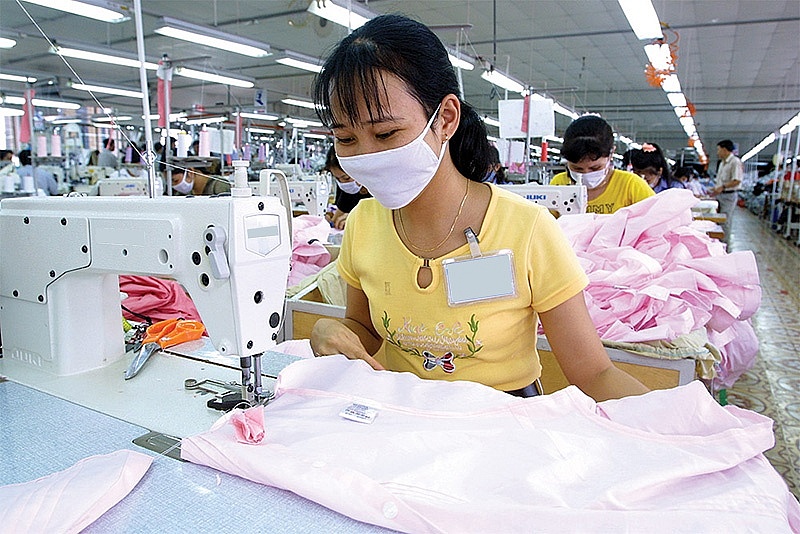Harsher actions demanded for insurance evasion
Innolux Footwear, a European-owned manufacturer in Vietnam, was detected evading total mandatory insurance contributions worth over VND7 billion ($292,000) between March 2022 and March 2024.
 |
| Harsher actions demanded for insurance evasion, illustration photo |
According to the Vietnam Social Security office in the south-central province of Binh Thuan, the company was established in July 2021. During the operation process, the company only completed the mandatory insurance responsibility for workers as of February 2022.
The authorities urged the company to pay the insurance and applied a fine of $6,200 due to the delay. However, Innolux Footwear merely paid the fine and continued to neglect fulfilling its insurance obligations.
On March 1, the company suddenly ceased activity at its ground facility and removed all machinery and equipment from the registered working site, disappearing without trace. As a result, nearly 700 workers have yet to close their social insurance book.
According to the regulations, the total time for closing the social insurance book should not exceed 14 days, meaning that their rights and benefits have been neglected.
According to a report from the Ministry of Labour, Invalids and Social Affairs, by the end of October 2023, the total amount of late-paid and evaded social insurance and unemployment insurance premiums was roughly $565 million, a considerable increase from the average amount of about $400 million per year during 2016-2022.
Fines for foreign-invested enterprises (FIEs) failing to pay social insurance premiums have been specified in Decree No.28/2020/ND-CP released in 2020 on providing penalties for admin violations in labour, social insurance, and overseas manpower supply under contract.
In the case of failing to pay compulsory social insurance premiums on schedule, insufficiently but unintentionally, and completely, violating FIEs may be fined 12-15 per cent of the total amount of the compulsory social insurance.
If an FIE fails to pay compulsory social insurance but not to the extent of criminal prosecution, the violating enterprise may be fined 18-20 per cent of the total social insurance payment. If companies are evading these contributions but not to the extent of criminal prosecution, the violating FIE can be fined up to $3,200.
Ngo Duy Hieu, vice chairman of the Vietnam General Confederation of Labour (VGCL) said that although the legal system has identified a legal corridor to resolve the delay or evasion in paying social insurance payments, there are still many inadequacies and inconsistencies.
“For example, during administrative penalty proceedings, social insurance agencies can only determine whether payments were missed, insufficient, or incorrectly calculated according to regulations - without sufficient tools or methods to conclusively identify evasion,” Hieu said. “Thus, the implementation faces barriers, causing the increase in mandatory insurance debt with complex variables.”
This leaves employees not wanting to devote themselves to and work for companies for a long time, thus affecting labour productivity and competitiveness.
“It is also one of the reasons for disputes and conflicts between employees and employers, leading to spontaneous and collective strikes that cause social instability,” Hieu added.
The VGCL recommends the Ministry of Public Security considering and beginning legal proceedings on several cases related to social, health, and unemployment insurance to create deterrence, while guiding trade unions at all levels in how to begin legal proceedings against legal violations regarding insurance payment obligations.
 | Worker insurance gets livestream attention The application of livestreams to provide information about voluntary social insurance and household health insurance schemes next month will demonstrate the determination of Vietnam Social Security in widely disseminating policies to the people and helping participants ensure long-term rights and benefits. |
 | Worker protection required after spate of lay-offs persists With the labour and employment market entering choppy waters in the last months of the year, social stability could be threatened if policymakers do not address the issue, experts say. |
 | Rights made central to foreign worker policy Applying fair recruitment criteria is necessary to protect sustainable human resource development between Vietnam and Japan, according to labour experts. |
What the stars mean:
★ Poor ★ ★ Promising ★★★ Good ★★★★ Very good ★★★★★ Exceptional
Related Contents
Latest News
More News
- Ho Chi Minh City launches plan for innovation and digital transformation (February 25, 2026 | 09:00)
- Vietnam sets ambitious dairy growth targets (February 24, 2026 | 18:00)
- Masan Consumer names new deputy CEO to drive foods and beverages growth (February 23, 2026 | 20:52)
- Myriad risks ahead, but ones Vietnam can confront (February 20, 2026 | 15:02)
- Vietnam making the leap into AI and semiconductors (February 20, 2026 | 09:37)
- Funding must be activated for semiconductor success (February 20, 2026 | 09:20)
- Resilience as new benchmark for smarter infrastructure (February 19, 2026 | 20:35)
- A golden time to shine within ASEAN (February 19, 2026 | 20:22)
- Vietnam’s pivotal year for advancing sustainability (February 19, 2026 | 08:44)
- Strengthening the core role of industry and trade (February 19, 2026 | 08:35)

 Tag:
Tag:




















 Mobile Version
Mobile Version